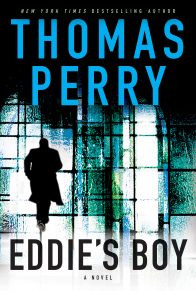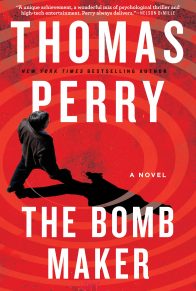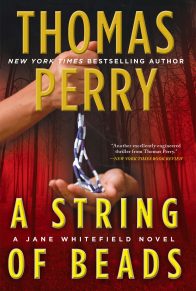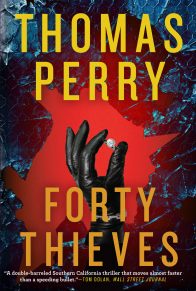About The Book
Poison Flower, the seventh in Thomas Perry’s celebrated Jane Whitefield series, opens as Jane spirits James Shelby, a man unjustly convicted of his wife’s murder, out of the heavily guarded criminal court building in downtown Los Angeles. But the price of Shelby’s freedom is high. Within minutes men posing as police officers kidnap Jane and, when she tries to escape, shoot her.
Jane’s captors are employees of the man who killed Shelby’s wife and framed him for the crime. The killer believes he won’t be safe until Shelby is dead, and his men will do anything to force Jane to reveal where Shelby is hiding. But Jane endures their torment, and is willing to die rather than betray Shelby. Jane escapes but she is alone, wounded, weak, and in pain, thousands of miles from home with no money and no identification, hunted by the police as well as her captors. She must rejoin Shelby, reach his sister before the hunters do, and get them both to safety. Jane is caught in a waking nightmare, as many of the pursuers Jane has eluded for years gather to bid for her in a multimillion- dollar auction. The winning bidder buys the chance to tear from Jane’s memory the names and addresses of all those she has helped disappear and begin new lives.
In this unrelenting, breathtaking cross-country battle, Jane survives by relying on the traditions of her Seneca ancestors. When at last Jane turns to fight, her enemies face a cunning and ferocious warrior who has one weapon that they don’t.
Praise
“Fans of Jane Whitefield know what to expect from this fearless Indian guide in Thomas Perry’s quick-witted capers: cunning strategies, clever disguises, ingenious escape tactics and breathtaking cross-country chases. Perry delivers to order in Poison Flower.” —Marilyn Stasio, New York Times Book Review
“At a time when franchise characters are publishing gold, (Jane Whitefield) is the sort of protagonist most crime novelists would kill for.” —Wall Street Journal
“Spellbinding. . . Jane shares some traits with another outstanding protagonist, Lee Child’s Jack Reacher. Both are resourceful, fearless, and whip-smart.” —Seattle Times
“Perry’s heroine, Jane Whitefield, continues to be one of the most original and intriguing characters in contemporary crime fiction . . . . Perry plunges us into his patented nerve-wracking, extended chase scenes before the novel’s harrowing climax.” —Booklist (starred review)
“A tour de force. . . an hours-long jolt of pure, adrenaline-fueled plot.”–Kirkus Reviews
“Exciting. . . . Perry ensures the characters shine.” –Publishers Weekly
Awards
Booklist 2012 Best Crime Novels
Kirkus Reviews Best Fiction Books of 2012
One of Booklist‘s 101 Best Crime Novels of the Past Decade
Excerpt
She thought about her runners. Over the years she had taken dozens and dozens of them away. Shelby was only the most recent. They had almost all come to her in the last days of wasted, ruined lives, sometimes just hours before their troubles would have changed from dangerous to fatal. She would obliterate the person’s old identity and turn him into a runner, a fugitive she would guide to a place far away, where nobody knew him, and certainly nobody would ever think of killing him. She would give him a new identity and teach him how to be that new person for the rest of his life. She had lived a good life, but now she had to be ready to die to preserve the other people, the ones who had trusted her with their lives.
The pain of torture was almost unbearable, but she had discovered it had other qualities too. It set her apart from the rest of humanity. Each time the pain didn’t destroy her was a failure for the enemy, a wall that had held against an attack.
The cuts and burns were decorations of valor and at the same time proof of the torturers’ unworthiness. The pain was the means of consecration, the welcome fi re that proved the victim’s nobility. She would wait for the next torment, and if she got the chance she would use their implements as weapons. And when she couldn’t do that anymore, she would use one of them on herself.













